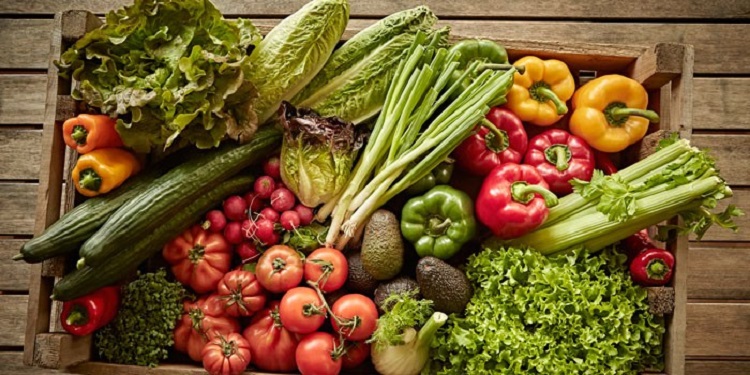
When compared to conventionally farmed food, organic food has more vitamins, minerals, enzymes, and micronutrients. Whether you frequently shop at supermarkets, farmers markets, or large stores, it's likely that you have a wide range of organic product options in addition to conventional ones. This fits with the general tendency toward considering how our actions may affect the environment in order to live more sustainably.
Organic food is not genetically modified and is produced without the use of synthetic chemicals created by humans, such as pesticides and fertilizers. Though less than 10% of goods sold in the United States now are organic, data suggest that demand is growing, and experts anticipate that trend to continue.
Food must be cultivated and processed in accordance with the National Organic Program, which is supervised by the United States Department of Agriculture, in order for it to be certified organic (USDA). Highlights of the program, in brief:
Foods that are labeled as "natural" by the USDA must be minimally processed and free of any artificial ingredients, which are clearly both good practices. However, there are differences between natural and organic foods in terms of criteria. Consumers who are weighing their green options should be aware of this distinction.
Local food is typically defined as food that is grown or produced close to where it will be sold or consumed. Or, another way, local food travels little after being produced. However, food cultivated within a 100-mile range or in-state is the definition of local food that is most frequently used. Because local food travels less distance to reach your plate than imported or nationally grown food, it is better for the environment whether it is organic food or not.
These below items should be at the top of your list if you're picking and choosing which organic food to purchase:
The numerous benefits of organic products are discussed below:
Its cultivation uses fewer pesticides.
Even while some pesticides are allowed on organic fruits and vegetables, they are much less hazardous than the chemicals used on conventional food and are created or derived from natural sources. Eating organic food lowers your exposure to bacteria that are resistant to antibiotics and pesticide residue.
It may be healthier
Organic food is healthier for you. Organic fruits and veggies may have 20 to 40% more antioxidants than conventional ones.
Organic foods have been shown to have lower levels of toxic metals and higher levels of vitamin C and polyphenols such as protection against heart disease, type 2 diabetes, and some cancers.
Eating organic food did not affect women’s cancer risk in one way or another.
It has several elements that are more eco friendly
Organic farming and ranching decrease pollutants, save water, improve soil quality, and lessen soil erosion. Additionally, non-organic farms' water runoff contains fertilizer, pesticides, and animal manure that aren't used in organic farming. These toxins pose a threat to pollute lakes, rivers, and other bodies of water.
Fresher food
Because organic food lacks preservatives to extend its life span, it is frequently fresher. Produce that is grown organically is frequently produced closer to home and is distributed farther.
Emit fewer greenhouse gas
Greenhouse gas emissions are lower in organic food farming. Healthy soil produced by organic farming uses less water and does not become contaminated with chemical pollutants.
It is more costly
Cost is a crucial practical factor when buying organic food, especially when your pocketbook may already be suffering the effects of grocery shop inflation. Organic food is more expensive mostly due to the increased expenditures involved in agricultural methods that adhere to all USDA rules.
More land is used
A much bigger area of land required to farm food organically versus conventionally should factor into any responsible overall cost-benefit analysis of both production methods. The more land that is co-opted to fulfill specific criteria needed for organic farming, the more deforestation results.
Organic food is not always healthful
The majority of nutrition experts agree that organic foods have many advantages. But, an organic cookie is still a cookie, though. Simply put, just because something is organic doesn't mean you may eat as much of it as you like; you still need to take its calories, sugar, fat, and other nutritional profile factors into consideration.
Final word
Customers want to know more about the origins and production processes of their food and are looking for reasons to eat healthier. Eating organic food might be challenging due to its higher cost, potential environmental impact, but it has numerous nutritional advantages and environmental impact.